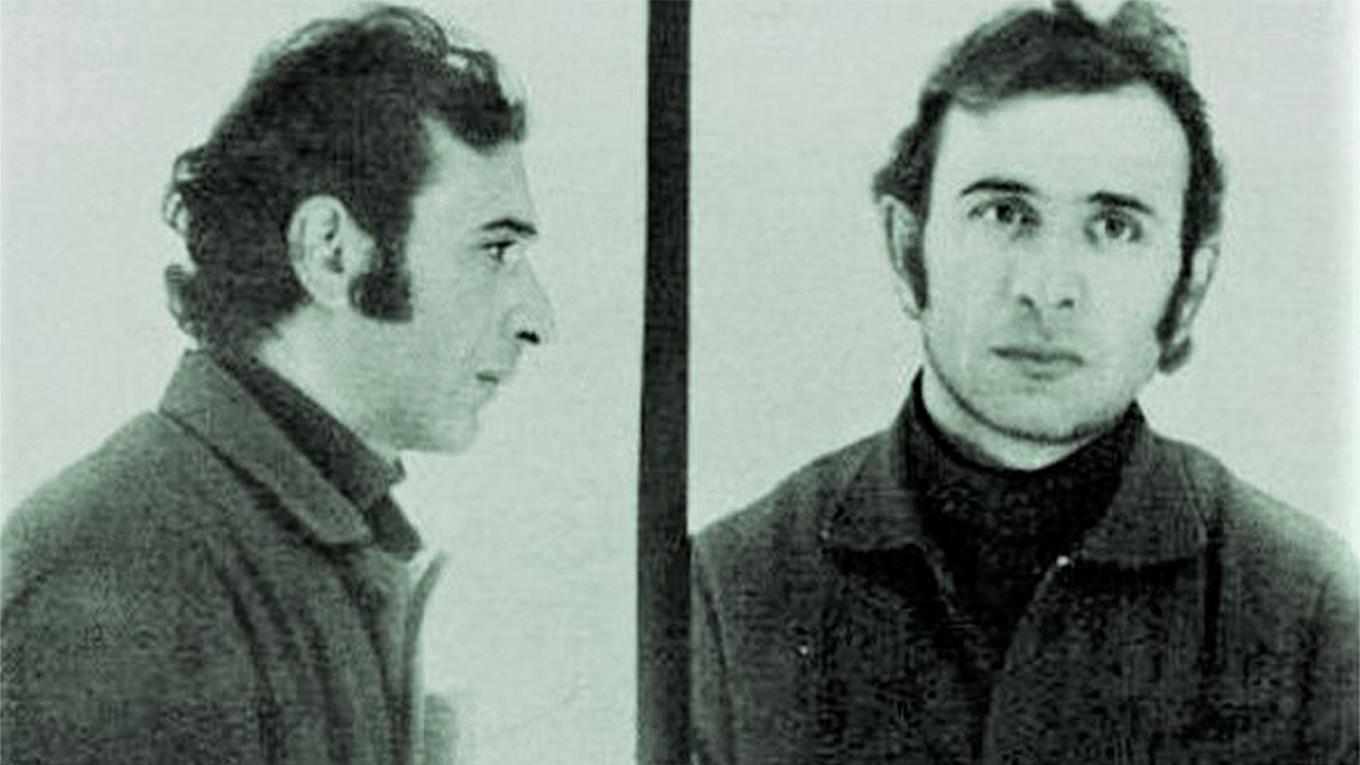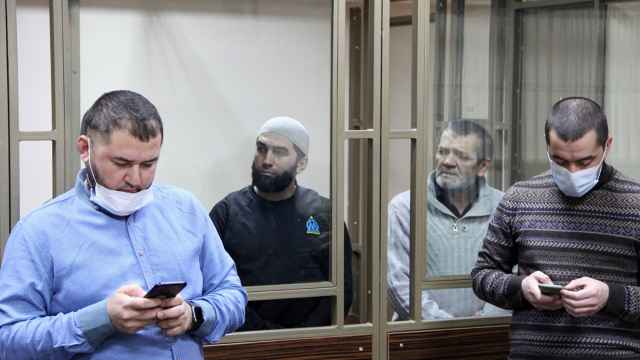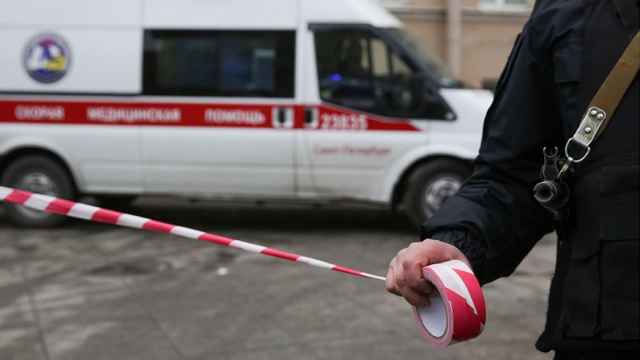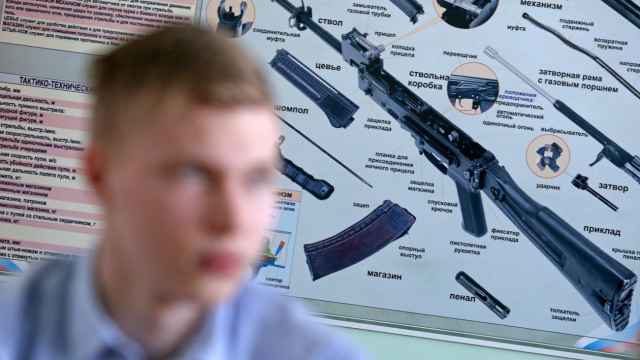My great-grandfather taught me two things:
- Don’t do drugs
- Never trust your government
He was an expert in both: a reputable doctor whose healthy lifestyle allowed him to live to 92, he spent a decent amount of time in the late 1970s in various KGB quarters. He, along with other members of his family including his pregnant daughter, was interrogated in relation to the 1977 bombings in Moscow. His cousin, Stepan Zatikyan, was one of the suspects.
A lot of people in Russia disagree with my great-grandfather’s assertion that they should never trust their government. In fact, they trust the government so much that they are willing to delegate to it the ultimate right: to decide who deserves to live, and who deserves to die.
In 1979, the Soviet government decided that Stepan Zatikyan did not deserve to live. After a secret investigation and trial, he was sentenced to death and killed less than a week later. The case remains classified to this day.
A lot of things in the case simply don’t add up. Nobody has seen concrete proof of Zatikyan’s involvement in the attack, in contrast to two other convicts — but even they denied that Zatikyan took any part in the bombings. He himself never pleaded guilty.
The case drew the attention of Andrei Sakharov, a Soviet dissident and human rights advocate. In a series of articles and open letters, he pointed out evidence that raised doubts that Zatikyan was guilty. He had an alibi confirmed by several witnesses showing he was not in Moscow on the day of the attack. There was nothing that could tie him to the terrorists except for his nationality and his hatred of everything Soviet. For that, he had already spent four years in prison, after which he ceased his political activities.
In his letter to General Secretary Leonid Brezhnev, Sakharov wrote:
“The investigation showed no interest in clarifying this and other important circumstances. The trial, unnecessarily, was completely closed and secret; even his relatives knew nothing about it. Such a trial, in which the principle of transparency is completely violated, cannot establish the truth.”
When I shared Zaktikyan’s story online, some people dug up a video recording of his speech at the trial — as if that was proof of his guilt. In the video, he says that he does not accept the authority of the Soviet judges and then goes on to scream “vrejh!” (“Take revenge”).
As I mentioned, the process was secret. This short video is one of the few things KGB decided to share publicly. That means that the most incriminating thing they had on Zatikyan was the fact that he wanted to get revenge on the people who sentenced him to death. To me, that does not look like proof of his guilt. I would have been very surprised if he had praised the judges instead.
I have no idea if Zatikyan was a terrorist. But I am absolutely certain that with the information we have, there is a very plausible chance that he could be innocent. All it takes for me to wish that the moratorium will never be lifted is the belief that even one innocent person could be wrongfully killed by the state.
But the terrible truth is, it will never just be one person who dies by the death penalty. That has never been the case. There are hundreds of thousands of people who were definitely innocent but were nevertheless killed.
In a country where every second person had a great-grandparent sentenced to death in or around 1937, it astounds me that anyone would cheer the revival of the death penalty.
Another relative of mine, my great-grandfather from the other side, was among the hundreds of thousands executed during Stalin’s Great Purge. His wife was sent to a gulag. Their children, including my grandfather, grew up in an orphanage. His name and birth date were changed, so that his three fake birth certificates issued by the orphanage would not link him to an enemy of the people.
It took me over ten years to even find out the name of my great-grandfather. From the scarce documents that my family discovered, I learned he worked as a teacher in various village schools and then studied engineering at a university. The note on his sentence simply says “Article 58-8, 9, 1. Capital punishment.” Article 58-8 detailed the punishment for terrorism.
I have no idea on what grounds the state accused him of terrorism, except for maybe the fact that he was originally from Poland. His execution might have been part of the Polish Operation, when over 111 thousand people were sentenced to death in an ethnic cleansing carried out by the NKVD.
Almost a million people were executed under Article 58 — thousands of them, like my great-grandfather, under Section 8 — as terrorists. At the time, the state did not even bother to hold a trial as a formality.
In 2024, Russian law enforcement agents do not bother to follow the law either. They showed off videos where they tortured the suspected gunmen behind the Crocus City Hall attack. We are left to trust that those people are the terrorists because, under Russian law, a person can only be ruled guilty by the judge. But they were tortured before they were even brought to trial. Shockingly, there are people who approve of this practice.
I have to ask them if they think this will only ever happen to terrorists. Check the list of people that Russia declared to be terrorists. How many of them have actually killed anyone in real life, not just on Minecraft? Are they 100% sure they or someone they know and love would never end up on that list?
Accepting that things like torture or death sentences can happen to innocent people is a very heavy load. And so trusting your government to ensure that everything is fair is somehow easier than admitting that there is a clear risk of a miscarriage of justice.
As for me, I think I will stick to my great-grandfather’s advice, and not only when it comes to drugs.
A Message from The Moscow Times:
Dear readers,
We are facing unprecedented challenges. Russia's Prosecutor General's Office has designated The Moscow Times as an "undesirable" organization, criminalizing our work and putting our staff at risk of prosecution. This follows our earlier unjust labeling as a "foreign agent."
These actions are direct attempts to silence independent journalism in Russia. The authorities claim our work "discredits the decisions of the Russian leadership." We see things differently: we strive to provide accurate, unbiased reporting on Russia.
We, the journalists of The Moscow Times, refuse to be silenced. But to continue our work, we need your help.
Your support, no matter how small, makes a world of difference. If you can, please support us monthly starting from just $2. It's quick to set up, and every contribution makes a significant impact.
By supporting The Moscow Times, you're defending open, independent journalism in the face of repression. Thank you for standing with us.
Remind me later.






